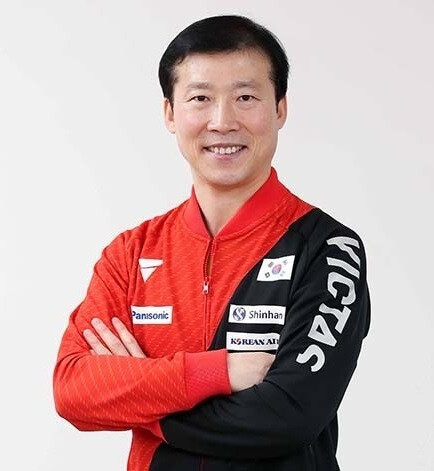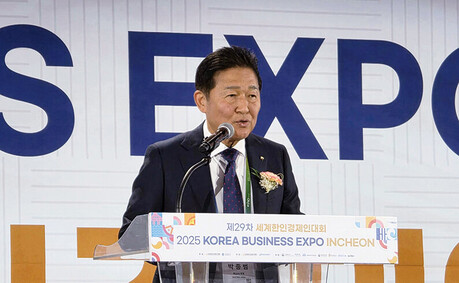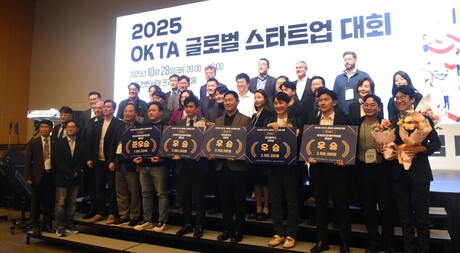
The year was 1987. South Korea was abuzz with preparations for its first-ever Summer Olympics. Amidst this national fervor, 17-year-old high school student Kim Taek-soo, whose world revolved around table tennis, left his hometown of Gwangju for Seoul, chasing a singular dream. He envisioned himself standing atop the Olympic podium, the national flag fluttering above, the anthem resonating – a powerful image that propelled him to the Taereung National Training Center. Now, at 55, Kim Taek-soo, the current head of the Jincheon National Training Center, vividly recalls the overwhelming emotion of donning the national insignia for the first time.
"My heart beat with an unparalleled fervor and excitement," he reminisces. "Taereung, the national training center, is the very place that shaped who I am today."
Thirty-eight years have passed since Kim Taek-soo embarked on his national team journey. While the training center has relocated from Gongneung-dong in Seoul to Jincheon in Chungcheongbuk-do, Kim's dedication remains unwavering. His role has evolved from athlete to coach, then director, and now, the esteemed position of Training Center Chief – a figure who once seemed distant and formidable during his own athletic career. Gazing out from his office at the sprawling Jincheon Training Center, Kim reflects on the path he has traversed since his initial entry into Taereung.
His illustrious career includes a remarkable 17-year tenure as a national team player. More recently, he served as the Vice President of the Korea Table Tennis Association, lending his expertise to the 2024 Paris Olympics.
The path leading to the Chief's office on the second floor of the administrative building was, quite literally, a "flower path." Congratulatory wreaths and orchids from figures in the sports and business worlds lined the corridor, a testament to his official inauguration for a two-year term.
However, the reality of his new role presents its own set of challenges. Coincidentally, on the day of this interview, the Sports Ethics Center under the Ministry of Culture, Sports and Tourism requested disciplinary action against the Korea Table Tennis Association concerning events that transpired during Kim Taek-soo's time as Vice President. The investigation revealed that the association allegedly provided incentives to an executive for securing sponsorships, a potential violation of regulations. In response to these allegations, Kim Taek-soo stated firmly, "I have lived my life as a sports figure with unwavering integrity."
Kim Taek-soo's deep-rooted connection with Yoo Seung-min, the current President of the Korean Sport & Olympic Committee, has garnered significant attention. During their active playing years, Kim was an admired role model for the younger Yoo, who is twelve years his junior. Their bond reached a pinnacle at the 2004 Athens Olympics, where, as coach and protégé, they orchestrated a stunning victory against the formidable "Great Wall" of China, with Yoo clinching the gold medal in the men's singles. Following their retirements, the two continued to collaborate as President and Vice President of the Table Tennis Association, spearheading the advancement of Korean table tennis. Now, they stand as the heads of the nation's overarching sports body and its primary training facility, respectively, overseeing the broader landscape of Korean athletics.
A pivotal moment in their intertwined careers occurred during the lead-up to the Athens Olympics. Despite finishing first in the national team trials, Kim Taek-soo made the selfless decision to relinquish his national team spot and instead dedicate himself to coaching his younger teammate. "There were certainly lingering regrets about missing my last potential Olympics," Kim admitted. The catalyst for his transformation into a "kingmaker" was Hyun Jung-hwa, the coach of the women's national table tennis team and current director of the Korea Racing Authority.
Kim Taek-soo recounted, "I was hesitant about the association's suggestion when Senior Hyun approached me, saying, 'I'll take the women's team, you take the men's, let's make something happen.' That solidified my decision. The moment I let go of my personal ambition, I immersed myself in analyzing the Chinese players." To counter Wang Hao's formidable backhand, a weakness Yoo Seung-min struggled against, Kim Taek-soo relentlessly practiced Wang Hao's technique, even to the point of straining his wrist ligaments, ultimately playing a crucial role in securing the gold medal.
Now, accepting Yoo Seung-min's request to lead the national training center, Kim Taek-soo champions the vision of an "open training center." Externally, this entails breaking down the traditional exclusivity of elite athlete training by opening the facilities to youth athletes and the general public, fostering dreams and broadening the base of Korean sports.
Internally, Kim envisions a space that transcends the hierarchical structure of chief-coach-athlete, fostering an environment of camaraderie and mentorship among athletes of all levels. Despite the initial demanding workload that led to him needing an IV drip and rest over a weekend, Kim makes it a point to join the athletes for their 6 AM morning workouts.
The rigid, "when I was your age" training regimen of the past Taereung era is a distant memory. Kim prioritizes a training environment built on respect and autonomy rather than strict rules and control. However, he remains firm on the importance of "main training" sessions tailored to each sport's competition schedule. "One of the first things I changed upon arriving at the training center was making the early morning workouts voluntary," Kim explained. "This generation doesn't respond well to being forced. Yet, even though it's voluntary, I'm proud to see so many athletes out there in the early morning chill, diligently pursuing their training."
"I believe we've moved beyond the era of simply counting the number of Olympic medals we win," Kim stated. "We often categorize sports as popular and unpopular, but here at the training center, we also have 'lesser-known sports' that the public isn't very familiar with. I want to instill confidence in athletes in these less popular and lesser-known disciplines – the belief that they too can achieve. I believe this is the path towards the development of a healthy sports ecosystem in our country." When asked how he wishes to be remembered as a Training Center Chief in two years, Kim Taek-soo's response encapsulates his enduring commitment to Korean sports.
[Copyright (c) Global Economic Times. All Rights Reserved.]



























